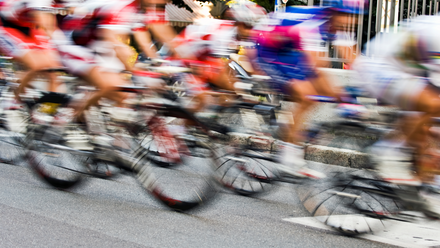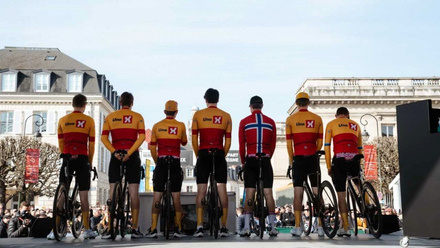Registered Dietitian and SENR board member Nusrat Kausar discusses fasting and what impact it may have on those who exercise and train whilst observing Ramadan.
Why do Muslims fast during Ramadan?
Many people have heard of “intermittent fasting”, which can range from the restriction of calories for certain times in the day (time-restricted eating) or to the restriction of calories for multiple days of the week (alternate day fasting) e.g. diets such as the 16/8 diet or the 5:2 diet. This may be for health benefits or to support weight loss aims.
However, fasting during the month of Ramadan is one of the five pillars of Islam. For 29 to 30 days (depending on the lunar calendar), daily fasting is obligatory for all healthy Muslims who have reached puberty. During the fast, Muslims must refrain from eating and drinking between dawn and sunset; and must abstain from ingesting any oral medications, smoking, or sexual activity.
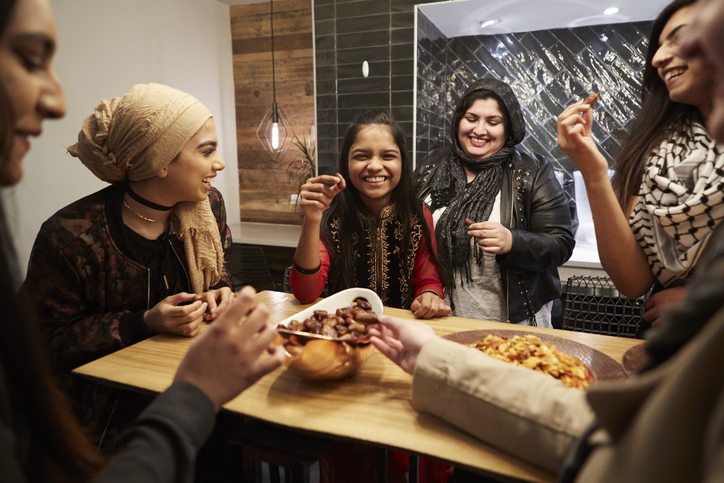
Ramadan is believed to be a holy month; it is not just a case of not eating and drinking, the whole body is in a state of abstinence. It is a time for spiritual contemplation, meditation, and prayer, where Muslims are seeking nearness to God. It is believed that the spiritual rewards for good deeds are multiplied in this month, as the Holy Quran was revealed to the Prophet Muhammad (peace be upon him) in Ramadan. Therefore, Muslims will strongly desire to participate in fasting, even though they could seek exemption, for example, children, the elderly, the sick, or pregnant women.
What are the physiological effects of fasting?
Fasting during Ramadan affects not only the timing of meals and fluids, but can also disturb medication intake, sleeping patterns, hormone levels, and changes to the circadian rhythm can affect a person’s metabolic state.1
Weight can be also be affected - some maintain weight, whereas others may lose or gain weight. This often depends on whether large meals and treats are consumed on iftar (opening of fast at sunset) versus eating normal, healthy meals.
Studies have demonstrated that fasting in Ramadan can be associated with beneficial effects on the lipid profile of healthy individuals, particularly causing reductions in low-density lipoprotein (bad cholesterol) levels.2
Additionally, intermittent fasting has been associated with positive changes in hormonal responses, oxidative stress, and inflammation.3 Often, if individuals are trying to lose weight, it can sometimes be easier to achieve calorific restrictions in Ramadan as there are only two main meals in the day.
Furthermore, as a consequence of fasting, smoking will be significantly reduced and may help those who are trying to quit achieve this in Ramadan, which will also have positive physiological effects.
How does the body provide energy during fasting?
In healthy individuals, fasting causes the release of glucose from the body’s glycogen stores or makes glucose from carbohydrates or other macronutrients such as proteins and fat. Glycogen stores in the liver can often provide enough glucose for the brain and muscles for approximately 12 hours.4 Once glycogen stores are depleted, stored fats are broken down to generate ketones, which can then be used as energy by the body, allowing glucose to be preserved for the brain.5
In the UK, Muslims are often fasting for more than 12 hours a day, so will likely have used all their glycogen stores by late afternoon, and be using fat as a source of energy from then onwards. However, if for some reason, suhoor (the dawn meal) was missed, this can lead to a reduction of the glycogen stores sooner and mean the body will use stored fat for energy much earlier in the fasting day.5
However, it should be noted that in patients with diabetes, fasting can be linked with disruptions to the normal glucose metabolism, possibly causing low or high blood glucose levels. Those with type 2 diabetes on multiple diabetes medications or insulin, and particularly those with type 1 diabetes should seek medical advice before fasting during Ramadan.
Is it safe to do sports and exercise during Ramadan?
Studies have often been conducted on athletes fasting during Ramadan, to gain a better understanding of intermittent fasting and its effects on performance. These studies have looked at different types of exercise, such as high intensity, endurance, and resistance exercise.
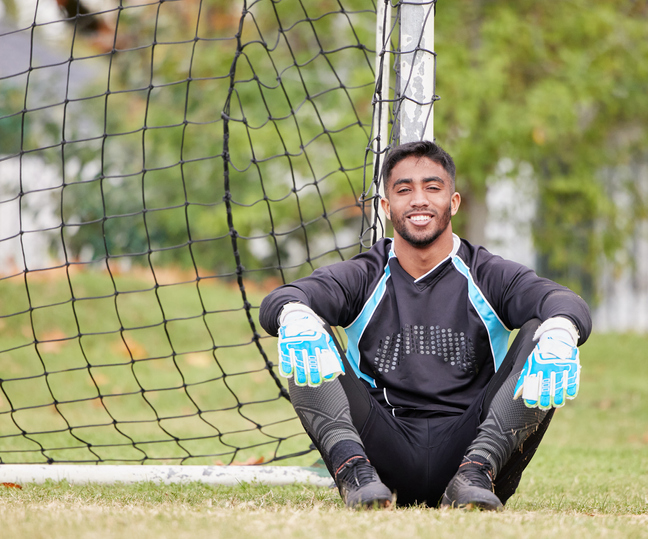
However, there are not many studies that focus on how to help athletes overcome nutritional barriers to exercising in Ramadan, often they focus on how fasting in Ramadan is harmful to health. This is a gap that needs more research in the future to help Muslims who participate in sports and exercise across the globe.
In the meantime, generally, studies have found that fasting in Ramadan seems to show no improvement in any of the different types of exercise on athletic performance.6 This is likely due to the fact, that during Ramadan no food or drink is consumed during daylight hours, therefore athletes may be affected by many other factors including dehydration, fatigue, and lack of pre and post-nutrition.
Interestingly, this seems to suggest that athletes can maintain their performance abilities for the different types of exercise during Ramadan, which hopefully means that non-elite athletes or individuals doing sports and exercise during Ramadan will also be safe to exercise. Studies have found that athletes can usually eat enough energy or possibly eat too much, particularly at iftar.7
For fluid rehydration, any losses in the day can be corrected in the evening after iftar. Therefore it appears that with good nutritional and hydrational strategies, at the two meals and over the non-fasting period, individuals can participate in sports and exercise whilst fasting in Ramadan with little impact on physical performance.
What can be done to minimise risks during fasting?
- Continue your normal exercise or training, but consider moving more high-intensity exercise sessions to nearer to iftar time (if able) which may help allow re-hydration and nutrition intake soon after exercise. Speak to coaches/teams and see if there can be any adjustments made to training times.
- It is best not to start any new exercise or sports during Ramadan without advice from a healthcare professional.
- Avoid exercising in hot temperatures or at the hottest times of the day (if able) to reduce increased sweating and reduce the risk of dehydration.
- Avoid using the sauna or steam rooms if using the gym or swimming pool, as this may increase the risk of dehydration.
- Try to rest after training. If possible have small naps during the day to minimise the risk of fatigue and sleep disruption, or deprivation.
- People with diabetes (type 1 or type 2) should speak to their diabetes team for advice on whether it is safe to fast during Ramadan for them. As well as seeking advice before starting fasting in Ramadan on what to do with the timing and doses of diabetes medication or insulin.
Top tips for nutrition for sports and exercise during Ramadan
For both meals
- Ensure you drink plenty of fluids, between two and three litres equally split between suhoor, iftar, and over the non-fasting period. It is best not to consume too much fluid in one go as this can cause an increase in urine output. Avoid too many caffeinated drinks as these may cause you to lose fluid and salts.
- Try to ensure you have good amounts of slow-releasing carbohydrates, such as wholegrain options of starchy foods e.g. wholegrain cereals, wholemeal bread, wholewheat pasta, brown or basmati rice, pitta bread, wholemeal chapattis. Or include high fibre foods that release energy slowly e.g. grains, seeds, barley, wheat, oats, millet, semolina, beans, pulses, or lentils.
- Include protein foods to ensure you get enough protein over the day e.g. meat, fish, eggs, beans, lentils, nuts, seeds, or vegetarian alternatives. Slow-release proteins such as dairy foods.
- Include some fruit and vegetables with the meal - diced, chopped, or eaten whole.
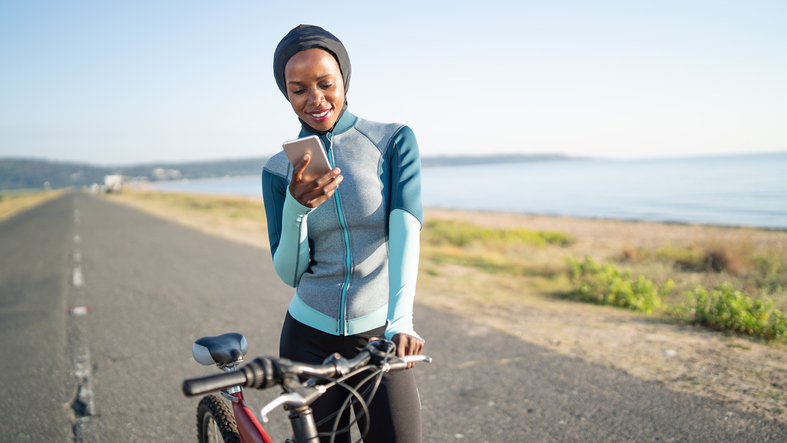
At suhoor
- Eat as close as possible to sunrise and think about what sports and exercise you are planning to do that day:
- If planning higher intensity or longer duration activities, try to ensure you have good amounts of slow-releasing carbohydrates.
- If you are planning a less intense activity, still include carbs as above, but try to focus on water as the main fluid option and try not to consume drinks high in carbohydrates such as fruit juices or sugary drinks.
- Do include some salt in the food whilst cooking but try not to add salt to foods at the table as too much salt can increase thirst during the day.
- Try not to miss suhoor as this can lead to decreased energy in the day and lead to glycogen depletion sooner.
At iftar
- Breaking the fast with dates and water (as is traditional in Ramadan) or milk is great for the replacement of glycogen stores.
- Start with wholesome foods such as soups, salads, and fruits.
- Do include some salt in the food whilst cooking and if you've had significant sweat losses during the day, you may need to include some extra at the table.
- Do include some treats e.g. starters and sweet treats but try to cook these using healthy cooking methods where possible. If not possible, try to keep to smaller portions.
After iftar
- Keep drinking water to rehydrate gradually over this time. If taking part in evening prayers, ensure to drink after completing them, to ensure good rehydration.
- You may want to have another meal or high carbohydrate snack during this time, to ensure you are getting enough macronutrients for recovery of any activity during the day.
- If eating opportunities are limited, drinks with high energy/nutrient density can be useful to meet high-energy requirements e.g. fruit and milk or yoghurt smoothies. Slow-release casein shakes could be considered for those that are struggling with managing to eat regularly.
References
- Bahijri S, Borai A, Ajabnoor G, et al. Relative metabolic stability, but disrupted circadian cortisol secretion during the fasting month of Ramadan. PLoS One 2013;8:e60917.
- Kul S, Savas E, Ozturk ZA, et al. Does Ramadan fasting alter body weight and blood lipids and fasting blood glucose in a healthy population? A meta-analysis. J Relig Health 2014;53:929-42.
- Desgorces FD, Breuillard C, Police C, Neveux N, Cottart CH, Blanc MC, Toussaint JF, Noirez P. Shortterm Effects of Diet and Activity Changes on Inflammation and Insulin Resistance. Int J Sports Med. 2016 Dec;37(13):1032-1037.
- Al-Arouj M, Assaad-Khalil S, Buse J, et al. Recommendations for the management of diabetes during Ramadan: update 2010. Diabetes Care 2010;33:1895-902.
- Karamat MA, Syed A, and Hanif W. Review of diabetes management and guidelines during Ramadan. J R Soc Med 2010;103:139-47.
- Levy, Emily MD; Chu, Thomas DO Intermittent Fasting and Its Effects on Athletic Performance: A Review, Current Sports Medicine Reports: July 2019 - Volume 18 - Issue 7 - p 266-269
- Shephard RJ. The impact of Ramadan observance upon athletic performance. Nutrients. 2012 Jun;4(6):491-505.



